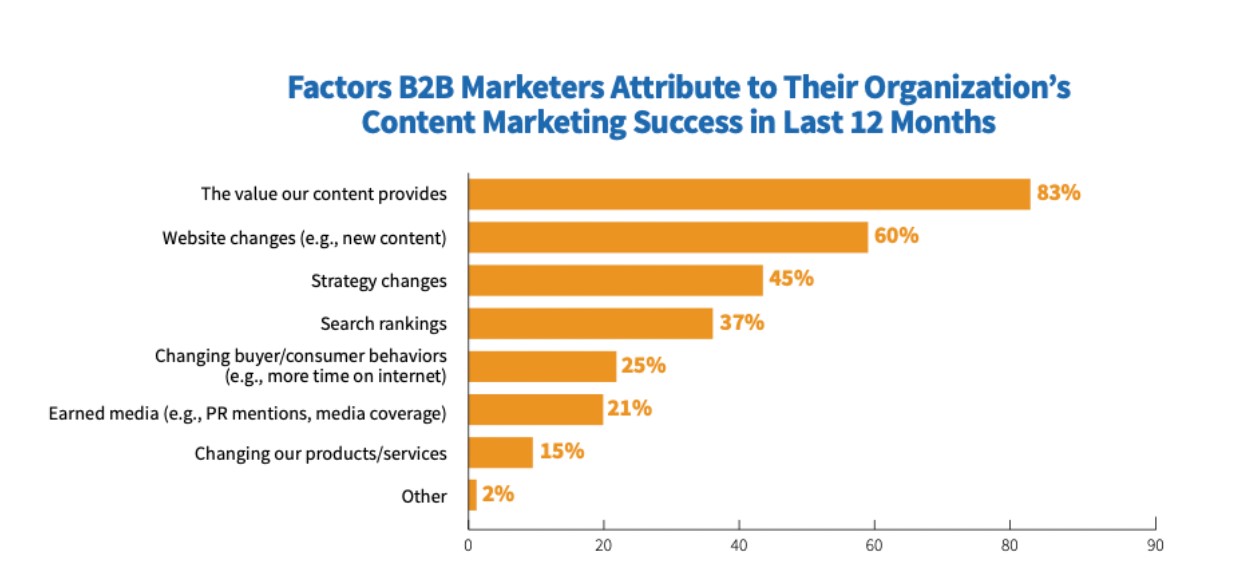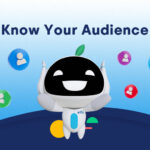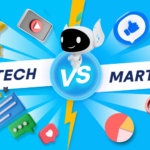
B2B marketing can be tough. The ever-dynamic landscape in the digital world is constantly changing how we market our products and services. It’s no wonder why, when marketing guru, Seth Godin claimed the only marketing left is content marketing.
Digitalization has left B2B marketers having to sell their products in a vastly different customer landscape than before.
Now, tech-savvy, strongly networked, and well-informed users make up the audience base. These tech natives, personalized-hungry customers have the power to either make or break your fair share of the market pie.
Marketing for businesses is not the same as marketing to individual consumers – however, there are takeaways for a B2C marketer as mistakes are common in a world of stiff competition.
Mistake #1: You’re Only Targeting The C-Suite

Targeting a specific segment of your audience can be a very risky move. For certain brands with identified niche customers, that might be the best way to find more paying customers.
However, if your brand’s product or service is valuable, useful, and applicable to segments of customers, it might be worth reassessing exactly who you are trying to reach out to.
In a pre-Covid world, targeting selected members of a business might be enough to get you at least a callback, product, or business pitch, but it is important to understand the decentralization of the decision-making process in today’s business world, where not just the C-suites can push the button.
A study by Gartner shows that as many as 6 to 10 decision-makers are involved in selecting vendors to solve their B2B queries, with each member of the typical buying group ready with their own gathered research done to narrow down the selection.
B2B marketing should strategize the content online to ensure it is also targeted to other career verticals in the organization that might be a part of the buying group, including product managers, data scientists, IT personnel, enterprise directors, and more.
Mistake #2: You’re Only Using Social Media As A Billboard
It’s no secret that your customers are online. If your customers aren’t online, then you’d have no audience at all.

That’s the reality of today’s digital world. It’s simply not enough to just exist online and hopes to spring up customers by the minute.
In an era where technology empowers competitors to co-exist in the same landscape, B2B marketing should stand out more. Reach more people, and do more to connect.
Social media and the web play a huge part in influencing the B2B buyer’s decision in choosing your brand, product, or service for business. According to the 2020 B2B Buyer Behavior Study, 70% of buyers regard “content that speaks directly to their industry” as key, with over 76% of buyers prioritize content when they ultimately select vendors.

Infographic Source: 11th Annual Content Marketing Survey: Content Marketing Institute/MarketingProfs, July 2020
Quantity loses out to quality. With B2B marketers and buyers increasing research time over the net, the value of the content has to be concise, engaging and impactful, and able to solve a business problem.
Mistake #3: You Don’t Use Paid Search Advertising to Its Best Potential
A majority of offline sales are influenced online.
What this means: today’s modern B2B buyer might look at your brand’s social media, perform multiple Google searches and even look through branded websites.
Be where the eyeballs are through advertising on paid searches.
According to Google, buyers tend to make 12 online searches before interacting with a business’s website, with search topics being broader compared to a targeted search.
Understandably so, having your business or brand appear at the top of the Google Search list garners fast and quality leads for your website traffic and sales conversions. As more researchers are conducted online, it is undeniable that PPC ads on Google strengthen brand recall and recognition, which may result in later sales.
Mistake #4: You Think B2B Advertising Has To Be Boring

Long gone are the times when B2C marketing is the only marketing type focused on sparking emotions for creative advertising and marketing tactics. Weaving brand storytelling into B2B marketing is here and ready to stay.
It’s long been said that brand empathy is one critical element missing from B2B marketing and advertising copies, visuals, and even for the core message. It is important to understand that like B2C marketing, B2B marketing is focused on services or products that can solve a real-world problem.
Although B2B buying decisions may be more complex than B2C, it is also crucial to note that B2B buyers are human, after all. Emotions sparks empathy based on relatability with that of human experience, which is part and parcel of human life.
In simpler words – B2B buyers don’t want to purchase a product, but instead, they’re looking to buy into your solution.
Instead of creating endless content talking about your products, embrace the opportunity to share what makes your brand or solution unique and a ‘must-have’.
No marketing challenge is too tough for us. Whether you’re a business looking to solve problems for individuals or other businesses, we’re here to help you make the best out of the digital space with the latest industry insights and innovative products and tools to tailor Digital Marketing Strategies to your business. Reach out to us today!




